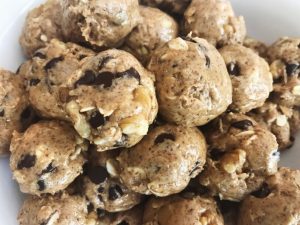 Whew! Its been a really busy couple of weeks here, fitting in some end of summer fun and getting ready for the start of school. School supplies have been purchased, uniforms are ready to go and we headed out the door last Tuesday for the start of third grade. Its hard to believe I have three third graders!
Whew! Its been a really busy couple of weeks here, fitting in some end of summer fun and getting ready for the start of school. School supplies have been purchased, uniforms are ready to go and we headed out the door last Tuesday for the start of third grade. Its hard to believe I have three third graders!
This time of year I always worry about how to keep my kids healthy as they sit in a classroom all day, don’t get as much sleep, fresh air or sunshine as we do during the summer, are exposed to more germs and get run down from school, homework and activities. Does anyone else feel this way?
At the start of week two, my kids are tired and my daughter was complaining of a sore throat this weekend. So I wanted share some of the things I do to keep my family’s immune systems functioning optimally, in hopes of keeping my kids from catching every bug that goes around this winter and, even more importantly, setting them up for a lifetime of good health.
Our immune system is an amazing and complex system made up of specific cells found throughout the body including lymphocytes (T-cells, B-cells and NK cells), monocytes and neutrophils; proteins such as cytokines that make up the “compliment system”; the organs that create, train or store our immune cells and certain “barriers” to the outside world that help protect us from bacteria, viruses and toxins. These barriers include our skin, mucous membranes and intestines. Our intestinal walls house 60% of the cells that make up the immune system. Our gut plays a very important part in protecting us from foreign invaders and cell damage. This is just one of the reasons gut health is so important to our immune function and overall health.
Each type of immune cell has specific jobs. Keeping the different types of cells in balance and each one doing its job properly is vital. This past weekend I heard an analogy that I loved. Imagine your immune system is a classroom, the B-cells are the students and the T-cells are the teachers. What happens if the teachers (T-calls) leave the classroom? The students run wild, of course! When our B-cells run wild, our immune system overreacts and begins attacking healthy cells and/or triggering an immune response to things in our food or environment. This is how we end up with chronic inflammation and auto-immune diseases including allergies, asthma, MS , IBS, chronic fatigue and fibromyalgia. This is also why many people with one autoimmune disease will be diagnosed with several others in their lifetime. You may think your seasonal allergies are just a normal part of life. But they are actually a sign your immune system is out of balance. On the other end of the spectrum, if our immune system is too weak to mount a proper defense, we are susceptible to getting sick from every virus or bacteria we come into contact with, our bodies have a harder time repairing cell damage and we have a much greater risk of developing a whole host of diseases, including cancer.
Fortunately, there are some relatively simple things we can do to help our immune systems function optimally.
1. Eat more fruits and vegetables
If you know me, you probably guessed this one! Number one on the list and far and away the most important thing we can do is to eat more fruits and vegetables. Research could not be any more clear that we must get plenty of nutrients from fruits and vegetables for healthy immune function. We all have to contend with time constraints and picky kids. But its so, so important to try to get 9 servings of fruits and vegetables/day. A green smoothie for breakfast is a great way to start the day with a good dose of nutrition and help keep your digestive system healthy. Have a big bowl of fruit with your eggs or oatmeal. Pack your child’s lunch and give them 2-3 servings of fresh fruits and vegetables for lunch. If your child eats a snack at school, ask to send a piece of fruit or a bag of carrots or cherry tomatoes. Make after school snacks fruit or veggies with a healthy dip rather than something out of a bag or box. Have a green salad and at least one other non-starchy vegetable for dinner. Even one or two extra servings/day can make a big difference and small changes really add up over time.
If you have picky kids who aren’t used to eating many vegetables, I’ve found giving kids choices and some autonomy helps. Make a game of picking out and trying new vegetables and figuring out which ones they like best. Let them decide whether they would rather have their broccoli raw, steamed or roasted. Serve two options and let them choose which they want to eat. I don’t let my kids say something is yucky or gross or they don’t like it. We say, “that’s not my favorite” and I remind them it takes effort to learn to like something new. But when its something good for our bodies that will help them run faster and score more goals in soccer, its worth it to keep eating it anyway until we learn to like it. When I serve veggies I know aren’t my kids favorite, they have to eat at least 2 pieces or bites. They can eat it with ketchup or hummus or ranch dressing or cheese or wrapped in a piece of bread, its up to them. I used to make my kids eat one piece of lettuce per year of their age, until at some point they started not minding salad. Now they will eat a serving of leafy green salad every single night with dinner and I know, even if we don’t get any other vegetables in the rest of the day, at least we have that!
2. Juice Plus
I know it is really hard to get in the recommended 9-13 servings of fruit and vegetables every day. So my whole family uses Juice Plus, a fruit and vegetable concentrate containing 30 different vine-ripened, chemical free and non-GMO fruits and vegetables. I’m typically a skeptic when it comes to supplements, but when I took the time to do my homework on Juice Plus, I was really impressed and it has definitely made a difference in my family’s health. Juice Plus is our insurance policy for the days we don’t eat as well as we should.
Juice Plus is the most researched nutritional supplement in the world and has been the subject of over 30 gold standard (randomized, double-blind, placebo controlled, peer reviewed) studies conducted by reputable institutions around the world. It has been found to be bio-available (actually absorbed and utilized by the body), reduce damage to DNA, reduce oxidative stress and to improve key markers of immune function. One study found Juice Plus “significantly enhanced multiple measures of immune function in elderly subjects” and another had similar findings in law students. Another study found symptoms of the common cold were reduced in nurses taking Juice Plus.
The Juice Plus Children’s Health Study has found that kids taking Juice Plus have fewer sick days, fewer doctors visits and fewer prescription medications. Kids using Juice Plus have also been found to eat more fruits and vegetables! Amazing, right? Our bodies are amazing, and when we feed them the nutrition they need, they realize it and start to crave more of those nutrients.
3. Limit sugar as much as possible
Sugar is one of the most harmful substances in our diets today. Its effect on our immune function is just one of the many reasons to limit or avoid sugar. In the 1970’s Linus Pauling, a very influential researcher in the field of microbiology, discovered that vitamin C helps the body fight off the common cold. Bacteria and viruses are swallowed up and destroyed by a special type of immune cell called phagocytes. These white blood cells must have extremely large quantities of vitamin C to be able to destroy viruses and bacteria. Dr. Pauling’s research is the basis for our popping vitamin C pills and chugging orange juice when we are sick. But Dr. Pauling and other researchers have also found that sugar competes with vitamin C for space in our cells. Glucose and vitamin C have a similar chemical structure and both rely on insulin to enter white blood cells. If blood sugar levels are elevated, when a white blood cell tries to pull in more vitamin C from the blood around it, it will absorb glucose instead. At a blood sugar level of 120 (a level that would be normal for a healthy individual after consuming one soda, a piece of cake or even glass of fruit juice) the white blood cells’ ability to destroy viruses and bacteria is reduced by 75%. It can take 4-6 hours for the vitamin C in the white blood cells to reach optimum levels again.
There is a reason pediatrician visits skyrocket after Halloween and through the holidays. If you want to keep your kids healthy, cut out soda and sugary drinks; reserve sweets for rare, special treats and watch out for sugar in unexpected places like yogurt, peanut butter and condiments.
4. Get plenty of sleep
Studies have long confirmed the importance of sleep to our immune function. In one study of 153 otherwise healthy men and women, those who slept less than 7 hours/night for two weeks prior to the study were almost 3 times more likely to acquire a cold when exposed to a pathogen than those who got 8 or more hours per sleep. Sleep Habits and Susceptibility to the common cold. Arch Intern Med 2009, 169:62-67.
Adults need 7.5 to 9 hours of sleep per night. Kids age 12-18 need 8.5 to 10 hours per night and kids 5-12 need 10-11 hours/night. Not always easy in our hectic, activity-filled lives. But it makes a big difference in our ability to fight off illness.
5. Essential oils
If you search for “essential oils” in PubMed Health, the US National Library of Medicine, you will find 141 different studies and articles about the scientific basis for the therapeutic use of essential oils.
During the fall and winter I try to massage immune boosting, anti-viral and anti-bacterial oils into my kids’ feet morning and night. If we are sick or fighting something, I rub oils on their feet every few hours and also apply oils that help with congestion, stomach issues or whatever other symptoms we may be dealing with. A few of my favorite oils for immune health or fighting off bugs are Melaluca or Tea Tree oil, Lavendar, Lemon and Thyme. I also love a “Super Immune” blend from Ananda Apothecary. I put a drop or two of lemon oil in my water bottle for flavor and prevention and if any of us are fighting a sore throat, we drink a shot of warm water with a teaspoon of raw honey and 8-10 drops of lemon oil.
Do your own homework and make sure you are using pure oils from a trusted source. If you are new to essential oils, its important to know how to use them. Here is a link to a page on How to Use Essential Oils to get you started. Essential oils need to be diluted in a carrier oil before being used topically and some are much stronger than others. A few may be contraindicated for pregnancy, breastfeeding or other health conditions. So read up on the oils you are using and use caution when trying a new oil. I use coconut or sweet almond oil as a carrier. For applying to my kids feet, I put three or four drops of essential oils in a teaspoon of carrier oil. A little goes a long way!
What steps do you take to safeguard your kids’ health as you head into a new school year? I’d love to hear your experience if you use any of these strategies or if you have others that help your family stay healthy!
Disclaimer:
Please note, I am not a medical doctor and nothing in this post should be construed as medical advice. Please do your own research and talk to your health care provider about any medical concerns you may have.
Additional sources:
http://primaryimmune.org/about-primary-immunodeficiencies/relevant-info/the-immune-system/
http://www.whfoods.com/genpage.php?dbid=24&tname=faq
Immune Function in Elderly Smokers and Nonsmokers Improves During Supplementation with Fruit and Vegetable Extracts. Journal of Integrative Medicine (Winter 1999) vol. 2(1) 3-10. Found at http://www.sciencedirect.com/science/article/pii/S1096219099000104
Reduction of common cold symptoms by encapsulated juice powder concentrate of fruits and vegetables: a randomised, double-blind, placebo-controlled trial, British J Nutr / Volume 105 / Issue 01 / January 2011, pp 118-122. Found at http://journals.cambridge.org/action/displayAbstractfromPage=online&aid=7948498
Several Indicators of Oxidative Stress, Immunity, and Illness Improved in Trained Men Consuming an Encapsulated Juice Powder Concentrate for 28 Weeks, Journal of Nutrition. Found at http://jn.nutrition.org/content/137/12/2737.full.pdf
http://www.naturalnews.com/034185_glucose_vitamin_C.html
Sucrose, neutrophilic phagocytosis and resistance to disease, Dent Surv. 1976 Dec;52(12):46-8.
Role of sugars in human neutrophilic phagocytosis1, Am J Clin Nutr November 1973
vol. 26 no. Found at http://ajcn.nutrition.org/content/26/11/1180.abstract
www.alternativehealthatlanta.com
www.helpguide.org/articles.sleep/how-much-sleep-do-you-need.htm




